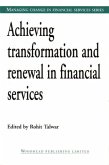In recent years, European financial economists have been brought together, via research projects and conferences, by the Centre for Economic Policy Research (CEPR). These fruitful interactions have contributed to the development of financial economics in Europe, and have generated a strong flow of interesting writing-both theoretical and empirical. The chapters in this volume reflect the depth and breadth of the research interests of European scholars in financial economics. The first section uses empirical analysis of financial market data to test the robustness of the pricing kernel model. The second section is on market microstructure, which is based on the observation of high frequency data. It explores the implications of asymmetric information and market imperfections. The third section points to how the study of speculation may link both the pricing kernel and the microstructure approaches. The final section on corporate finance suggests that contractual and agency problems have a significant impact on the pricing of financial assets.
The selection of papers presented in these two volumes reflects the depth and breadth of the research interests of European scholars in financial economics. Topics discussed include asset pricing in the context of perfect markets and of market imperfections, the interaction between business cycle and financial imperfections, take over bids, and the interplay between banks and financial markets. These two volumes will provide an invaluable reference tool for scholars in the field.
The selection of papers presented in these two volumes reflects the depth and breadth of the research interests of European scholars in financial economics. Topics discussed include asset pricing in the context of perfect markets and of market imperfections, the interaction between business cycle and financial imperfections, take over bids, and the interplay between banks and financial markets. These two volumes will provide an invaluable reference tool for scholars in the field.








